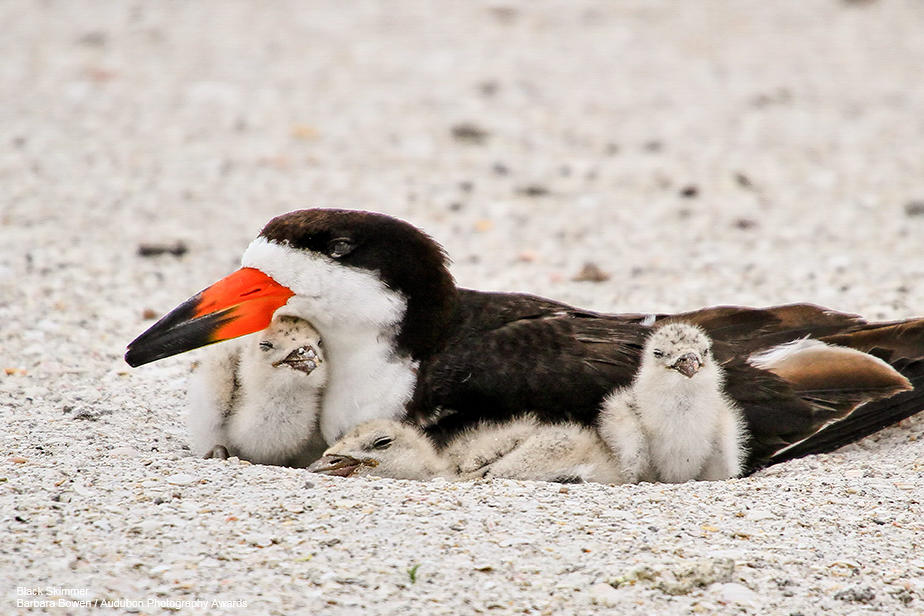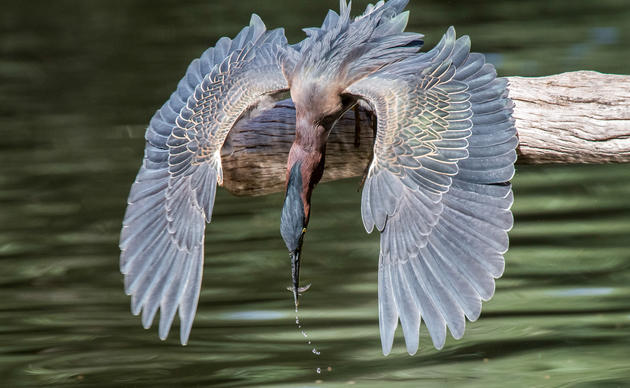
Columbia, South Carolina (January 10, 2019) – Audubon South Carolina is urging the South Carolina General Assembly to pass an innovative, comprehensive energy modernization bill that expands access to solar energy for consumers and businesses. Adopting responsible solar energy benefits birds and people by preserving the quality of South Carolina’s natural resources, stimulating job creation and the economy, and providing consumers and businesses with more energy choices.
“This energy reform bill is a win-win for people and birds. Our legislature has an opportunity to diversify the playing field by increasing options within South Carolina’s energy market. We look forward to supporting House and Senate leaders on tackling energy reform that reduces energy costs for consumers and businesses and positively supports our state’s economy, while promoting the welfare of its birds and people, too,” said Sharon Richardson, Executive Director of Audubon South Carolina.
The Clean Energy Access Act (S. 332) was introduced this week by Senator Tom Davis (R-Beaufort). Similar legislation is expected to be introduced in the House of Representatives. The Clean Energy Access Act will:
- Eliminate the net metering cap that limits home solar projects;
- Allow large energy consumers that create jobs to contract directly with energy suppliers to save on energy costs;
- Establish a “Consumer Bill of Rights” to ensure South Carolinians receive fair and transparent energy rates;
- Encourage large-scale solar facilities through increased transparency and streamlining; and
- Create a neighborhood community solar program to expand solar access to low-income customers.
“Audubon South Carolina thanks Senator Tom Davis for leading clean energy reform,” said Richardson. “Our 20,000 members across the state are committed to working with legislators to ensure we expand solar energy access and make South Carolina a clean energy leader.”
In last year’s legislative session, Audubon South Carolina worked with partners to pass H.4727, a bill that reauthorized the South Carolina Conservation Bank in perpetuity. Both legislative chambers had overwhelmingly approved a compromised version of the bill, thereby reaffirming their commitment to continue South Carolina’s policy of land conservation providing the opportunity to leverage private and federal investments for the public benefit. Since 2002, the South Carolina Conservation Bank has protected nearly 300,000 acres of South Carolina’s most critical conservation lands and iconic landscapes, including Audubon’s Beidler Forest Sanctuary in Harleyville, and Silver Bluff sanctuary near Aiken. Protecting landscapes like Audubon’s Beidler Forest and Silver Bluff Sanctuary is necessary to safeguarding public health and wellbeing, attracting tourism and investment to our state and preserving the South Carolinian heritage and natural resource based economic drivers.
In addition, the Audubon-driven Solar Habitat Act passed with unanimous support in the state Senate. This legislation created voluntary incentive for developers to choose indigenous plants over turf or gravel by which commercial solar developers can market their facilities as “pollinator and bird friendly,”—helping set commercial the state’s growing solar industry on a bird and pollinator-friendly path.
Audubon supports pragmatic, bipartisan solutions to advance clean energy policies that help birds and people. In 2014, Audubon released its Birds and Climate Change Report, which showed more than half of the bird species in North America at risk of disappearing by 2080 due to shifting and shrinking ranges as a result of a changing climate. Included in the list of 314 were many found in South Carolina, including the American Oystercatcher, the Black Skimmer and the Clapper Rail.
As part of a grassroots effort to urge legislators to adopt the bill, Audubon South Carolina will be working with a broad coalition of industry, conservation organizations, and clean energy advocates to pass comprehensive energy reform in the first 100 Days of the 2019 legislative session that began this week.
About National Audubon Society
The National Audubon Society protects birds and the places they need, today and tomorrow, throughout the Americas using science, advocacy, education and on-the-ground conservation. Audubon’s state programs, nature centers, chapters and partners have an unparalleled wingspan that reaches millions of people each year to inform, inspire and unite diverse communities in conservation action. Since 1905, Audubon’s vision has been a world in which people and wildlife thrive. Audubon is a nonprofit conservation organization. Learn more at www.audubon.org and @audubonsociety.
About Audubon South Carolina
Audubon South Carolina protects birds and the places they need, right here in South Carolina. We’re the state office of the National Audubon Society, which has more than one million members and a century-long track record of success. In South Carolina, we represent more than 20,000 Audubon members and supporters, nine Audubon chapters and bird club partners, two Audubon centers and 22,000 acres of land that we own and manage. Learn more about what we do and how to help at sc.audubon.org. Follow us on Facebook at @ScAudubon, Twitter at @AudubonSc, and Instagram at @audubon_sc.
Media Contacts
Angelina Ricci Eisenhauer
Director, Policy and Communications
aeisenhauer@audubon.org
202-257-4733



